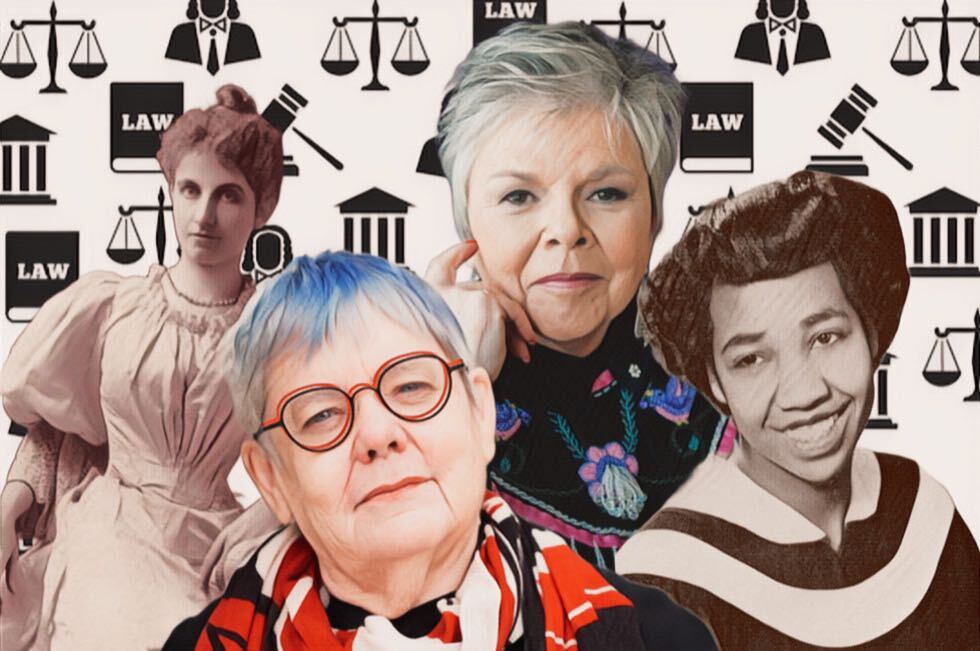
Four historical trailblazing women lawyers who should be household names
By Anjali Choudhary, March 14 2023—
Former Supreme Court of the United States Justice, Ruth Bader Ginsburg, famously said that, “women belong in all places where decisions are being made.”
For many, as for Ginsburg, the courtroom is the epitome of a place where powerful and consequential decisions are made. However, for much of history, women have been systematically left out of the legal profession. Even after women were legally allowed to practice law, they continued to face great barriers and a lack of recognition. While Ginsburg was well-renowned, Canada has its own history of trailblazing women lawyers who many Canadians have never heard of. In celebration of Women’s History Month, here are five women who have paved the way for myself — a law and society major — and all other women entering the legal profession.
Clara Brett Martin
Before 1897, not one woman in the entire British empire had obtained a legal degree. On Feb. 2, 1897, Clara Brett Martin created history and became the first woman lawyer in Canada and across the empire. Martin was a trailblazer for women in the academic realm in many ways. After being admitted to university just three years after women were allowed to do so, she constantly challenged all efforts made to prevent her from becoming a licensed lawyer. Martin not only faced hurdles by the Law Society of Upper Canada — now the Law Society of Ontario — to stop her from entering the profession, but she also faced hostile public opinion throughout her career which often prevented her from appearing in court. Martin nonetheless persisted, and because of her bravery and resilience, women now make up about half of the legal profession in Ontario.
Violet King Henry
Violet King, graduating from the University of Alberta in 1952, was the first Black woman to become a lawyer in Canada. After graduating, King highlighted both the racism and sexism she faced in public speeches. She also went on to become the first woman to be given a senior management position with the YMCA. Today, despite women making up a larger percentage of the legal profession, they continue to be underrepresented in senior legal positions globally. King was a woman who defied the countless odds stacked against her at the time and was not only a trailblazer, but also very successful in her time as an articling student and practicing lawyer.
Roberta L. Jamieson
Roberta L. Jamieson is a Mohawk woman who was the first woman elected as Chief of the Six Nations of the Grand River Territory and the first Indigenous woman to earn a law degree in Canada in 1976. Since her time as a McGill University undergraduate student, Jamieson has been a fierce advocate for Indigenous rights which drove her desire to pursue law. Jamieson has been appointed to multiple high-level public service roles with provincial and federal governments and Indigenous organizations. All of her efforts have resulted in her being appointed to the Order of Canada — one of the country’s most prestigious recognitions. In a country that continues to systematically oppress Indigenous peoples and continues to foster discrimination against women, Jamieson has broken unimaginable barriers throughout her career.
barbara findlay
barbara findlay, a queer feminist lawyer, became a licensed attorney in 1977 after studying at the University of British Columbia. This was only 10 years after homosexuality was decriminalized and 28 years before same-sex marriage was legalized in Canada. At only 17 years old, findlay was institutionalized by a university psychiatrist into a psychiatric facility for admitting to same-sex attraction.
She told CBC News, “At some point, after I graduated from law school, I realized that I was kind of standing on two icebergs and they were floating apart: one was ‘lesbian’ and one was ‘lawyer’. But I knew that if I was going to survive, I was going to have to be a lesbian lawyer.”
After over 45 years, findlay continues to advocate for the rights of the queer and trans community in B.C., making important strides, such as handling crucial child-custody cases for same-sex couples.
These individuals are only a few examples of the women who faced unimaginable obstacles to enter and change the legal system — an institution that was built on the foundations of exclusivity. Their identities as women and members of other marginalized groups cause their stories to get lost in history and have their contributions overlooked. As women in university, we navigate paths that have been paved by countless others before us who were brave enough to challenge the systems designed to exclude and oppress us. The least we can do in their honour is remember their names.
This article is a part of our Voices section and does not necessarily reflect the views of the Gauntlet editorial board.
